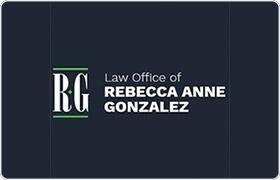 Utopia Family Law Lawyers, Texas
Utopia Family Law Lawyers, Texas
Sponsored Law Firm
-
 x
x

Click For More Info:
-
Law Office of Rebecca Anne Gonzalez
10101 Reunion Place Suite 615 San Antonio, TX 78216» view mapDivorce & Family Law Continuing The Gonzalez Legacy
At the Law Office of Rebecca Anne Gonzalez, my goal is to make certain you feel taken care of. My team and I work hard to protect what is important to you.
800-735-1530
Includes: Collaborative Law, Domestic Violence & Neglect, Paternity, Prenuptial Agreements
Lawyers
1-10 of 16 matches
Credit & Debt, Administrative Law, Elder Law, Criminal, Family Law
Personal Injury, Consumer Bankruptcy, Criminal, Family Law, Wills
Estate Planning, Family Law, Civil Rights, Federal Appellate Practice
Personal Injury, Bankruptcy, Juvenile Law, Family Law, Estate Planning
Business & Trade, Family Law, Clean Air Practice, State Appellate Practice, Litigation



 Rebecca Gonzalez San Antonio, TX
Rebecca Gonzalez San Antonio, TX Practice AreasExpertise
Practice AreasExpertise